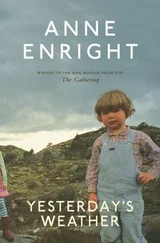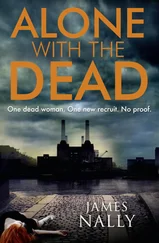Stewart wanted to walk away from this, but he could not, corralled as they were under Brazilian eyes.
'Doctor,' he said again to the sentry. 'Inglese. Inglese.' But the man was nervous of him – the sandy red hair, he supposed; the fact that his face had peeled and crusted so badly in the last, long months in the sun. He did look rather like a disease, and a foreign one at that. And so he grinned, in a winning sort of way, and went back to the men.
They sat and were obliged to watch Eliza, as though in expiation of all their crimes, as she rolled the body, first one end and then the other, towards the hole. The legs of Francisco Solano Lopez went in first and then, very slowly, the rest of him followed, turning as it went, so that his face surfaced one last time before disappearing into the ground.
Then she stood – as though, Stewart thought, to show them all the state of her dress. 'Look what you have done to my mousseline,' her hands might have said. She swept them downwards in a tragic dumbshow that might also have meant, 'May God have pity on women. The things that fall out of us that we can never pick up.'
She walked over to where Pancho lay and knelt beside him. And still no one dared to help her as she pushed one arm under her son's knees and the other under the small of his back. She tried to gather him up like this, as you might lift a sick child, but she could not. His stiffening body came up at the legs in a kind of comical kick, which forced the torso back down. Eliza dropped one leg and then the other, and then tried again. She started this time with a hand under the small of his back, then she reached for the knees, but the span of her arms was not enough to compass the length of her dead son, and she ended up circling his torso with both arms and, half-dragging, half carrying him, on her knees to the grave.
It was almost dark. Stewart had leisure to watch all this: the boy's arms falling out wide as his kneeling, dragging mother pulled him towards the gap she had made in the grass. His head was flung sideways, to show his mother the skin of his ear and throat. And his eyes were bent towards the men.
The Little Colonel looked across the grass at them. His face was livid with the sunset. It looked like a saint's face – he was so young, and his green eyes were glazed with the red of the flaming sky. Eliza let him drop at the lip of the grave, then lifted and pushed his head and shoulders into the hole. She lifted and pushed some more. But it became apparent that she, herself, was in the way and so she stood up to move around the other side. She must have trod on her own dress then, because halfway up she was jolted to a halt, and something tore. Eliza looked at the line where her skirt was joined to the bodice, and a sound came out of her crouched body that Stewart would remember for the rest of his life.
'Why did you not help her,' Venancia said many years later. And Stewart looked at his wife with fond amazement.
Ί would have been shot,' he said.
But thinking, not of Eliza, nor of the dead bodies, nor even of how one action of his might have begged another, but of the river playing with the mist, and the evening gathering of birds in the Cerro Corá.
In fact someone did approach her, early on. At first he was not stopped by the guards – perhaps because his face was so raw-looking and bare. He stopped before he reached her and signalled in a strangely covert way. He stood with a leaning look to him, craning towards her, and his hand fluttered in the middle of his chest, as though to say Tssst!' When she lifted her head and looked at him, he straightened up and smiled. Then the guard hustled him away. It was the eldest son of Francisco Lopez, Stewart saw, the one he had by his first mistress, Juana Pesoa.
That evening the captured men – Creole Spanish for the most part, along with those Guarani of discernible rank -talked about destiny. Stewart was amazed at their temperament; but, 'Philosophy is the luxury of the defeated,' said his wife's cousin, Frederico Báez. They told stories of the day's battle as though it had happened many years ago. Stories of their own escape, mostly – rehearsing them for their own amazement, the sequence of events that lead to the fact that they were still alive. The war was over. It was like blood returning to a deadened limb and some of the men cried; there was such anguish in the air that they kissed each other on the cheek and on the mouth and fell asleep, some of them, in each other's arms.
As for Stewart, he said that there were many different ways of tracing a life, but sometimes you think you would have ended up here no matter what. You would be the person you are, in the place where you are, watching a particular woman bury her son. And the stories you will tell your children; of journeys and chance encounters, of stray bullets and rolls of the dice – they may be true, but they are not necessary, after all.
'Then why are you still holding those scissors,' said Frederico Báez, and Stewart saw he had not let the blackened forceps out of his hand since noon.
There were many more stories told on the long walk home. One was a story of Eliza climbing a mound of corpses – like a rag-picker or a woman bereaved – and looking for a single face. It seemed that everyone knew this story, and each man had a different face in mind. One said that it was the face of a lover, a Brazilian who would step into the breach when Lopez was dead. Another said it was the face of a woman that she was looking for, and when she found it she scored her ring across the cheek and eye, like she was trying to get blood out of the corpse. One of II Mariscal's women, most likely; of which there were so many. But that is the problem with revenge – you cannot kill the dead. The grief of it, he said, when your enemy is gone and you can not hurt them, any more.
1873, Edinburgh
VENANCIA was as happy as Stewart to leave, after the last little baby died. Besides, it was hard to spend money in Paraguay, and it seemed they had a lot of money, now. The problem with Paraguay was that everything had to be imagined and ordered and shipped. And of course it grew more gorgeous as it crossed the ocean – a chair, a shawl, a glazed china rose: whatever gee-gaw it was, it became the most remarkable gee-gaw in the world, until you opened the box. There was something about the air of Asuncion that made things shrivel.
This was, finally, the talent Eliza had, Venancia said. A talent for shipping. And before they left, she took from La Recoleta a small, handsome, wrought-iron dog, with a narrow-bladed back. It was some time before Stewart realised what it was – a boot-scraper from outside Eliza's front door. Only one? The other was already taken, Venancia said; she had to pay a boy to hack this one out of the mortar where it was set.
Venancia was nothing if not tough; Stewart knew this, though the cold air of Scotland seemed to make her timorous and excessively kind.
'Oh yes’ she would say to some local biddy, over tea. 'Oh, I do so agree.'
And Stewart would move to the window, to admire the view.
Sometimes he discovered her hidden away in a room, sucking maté out of that disgusting gourd. She had a terrible greed for asparagus, and she reared her own chickens in a coop near the house. Other than that, they seemed, both of them, unmarked by the war and the lean years they had endured.
Venancia's looks were much worn, of course, but that was the children. She might be any age, he sometimes thought, from thirty to dead. Stewart had always liked old women, though he never expected to find himself in bed with one, or even, as occasionally happened, in a kind of accidental congress, which always left him feeling faintly hilarious.
In the early evening, when she was most busy, he might find himself following Venancia, for no reason, from room to room until she shooed him away with both hands flapping, and this always amused him, as though, together, they had done something quite witty.
Читать дальше












